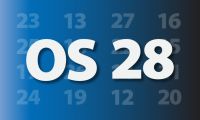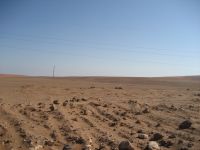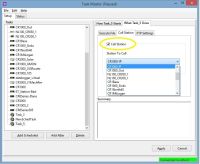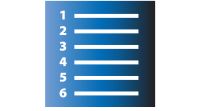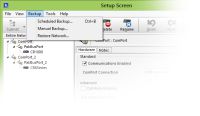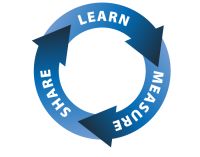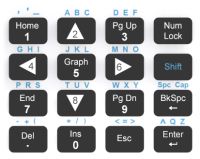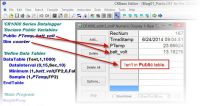The Campbell Scientific Blog Your source for useful how-to information and helpful expert advice
Displaying 161 - 173 of 173 articles
4 Ways to Make Your Data More Secure
Author: Jacob Davis | Last Updated: 07/15/2015 | Comments: 0
Your data is valuable, and sometimes that value is reduced if unauthorized users have access to it. For this reason, Campbell Scientific data loggers have numerous methods of restricting access to your data. This article is an overview of four available methods for securing your... read moreTroubleshooting Best Practices for Data Acquisition Systems
Author: Jason Ritter | Last Updated: 07/08/2015 | Comments: 0
Are your current troubleshooting methods not as helpful as you’d like them to be? This article discusses a number of troubleshooting best practices you can use, which may help you determine the source of the problem and resume your data collection more quickly. When I... read more4 New Ways to Use Array Notation: Complex Scaling
Author: Janet Albers | Last Updated: 07/01/2015 | Comments: 0
You can perform more complex scaling in an array without needing a For/Next loop. To take advantage of this feature, use OS 28 (CR6 OS 01) or later. In this example program, a unique set of multipliers and offsets is applied to the column of an... read moreHow to Prevent Skipped Scans and a Sunburn
Author: Jacob Davis | Last Updated: 06/17/2015 | Comments: 3
Through programming, relatively slow SDI-12 measurements can coexist, without problems, alongside fast measurements. To illustrate the need for accommodations in your data logger program, I will share the story of the worst sunburn I ever got. Southern Peru is near the Pacific Ocean, yet is... read more4 New Ways to Use Array Notation: Initializing Multi-Dimensional Arrays
Author: Janet Albers | Last Updated: 06/10/2015 | Comments: 0
Initializing variables within an array is more flexible than ever with OS 28 (CR6 OS 1). You can think of a single dimensioned array as numbers in a column. Two dimensions, in comparison, puts numbers in rows and columns. The third dimension is a page. For example:... read moreMake Your LoggerNet Data Collection More Flexible
Author: Dana Worley | Last Updated: 06/03/2015 | Comments: 0
If you are a user of our LoggerNet software, you know that the software can be configured to collect data from your data logger on a regular interval. From a data logger's Schedule tab in the Setup Screen, you can configure an interval of anywhere... read more6 Common Communication Problems Involving Serial Connections
Author: Jacob Davis | Last Updated: 05/29/2015 | Comments: 9
Your data logger may record great data, but if you can't retrieve it, the data isn’t going to do you much good. To ensure your successful data retrieval, it’s essential that you can troubleshoot possible problems that may arise with PC-to-data-logger communication over a serial... read moreHow to Check the Accuracy of Your Solar Radiation Measurements
Author: Bruce Smith | Last Updated: 05/29/2015 | Comments: 0
Solar radiation is an important measurement for many researchers and those who are monitoring their evapotranspiration values for irrigation purposes. If you have been wondering how accurate your solar radiation measurement is, Apogee Instruments (an associated company of Campbell Scientific) has a Clear Sky Calculator mobile... read moreHow Safe Is Your LoggerNet Data?
Author: Dana Worley | Last Updated: 05/29/2015 | Comments: 0
When you live in a cold-weather climate like we do here in northern Utah, it’s a welcome reprieve to spend a few days away enjoying someplace sunny and warm. A couple of days ago, as I was uploading photos of sunshine and blue skies from... read moreWelcome to the Campbell Scientific Blog
Author: Robin Deissinger | Last Updated: 05/29/2015 | Comments: 0
Which of these sounds like you? I need help with the basic stuff. How do I know what kind of measurement equipment I need? When I get it, how do I set it up correctly? I need programming help. How do I make sure I'm getting... read moreHow to Find and Insert Characters Using a Keyboard Display
Author: Janet Albers | Last Updated: 05/29/2015 | Comments: 0
A keyboard display, such as the external CR1000KD or on-board display of the CR850 and CR3000, is a powerful tool you can use in the field. A keyboard display enables you to interrogate and program a data logger independent of other telecommunication links. Most keys on... read moreGoing Public with Your Variables in CRBasic
Author: Janet Albers | Last Updated: 05/29/2015 | Comments: 0
When programming your Campbell Scientific data logger, have you ever wondered whether you should be using a Dim variable declaration or a Public one? What is the difference between them, and when is it best to use each one? Dim and Public variables are temporary holding... read more4 New Ways to Use Array Notation: Simple Scaling
Author: Janet Albers | Last Updated: 05/29/2015 | Comments: 0
The newest operating system released by Campbell Scientific for its data loggers is OS 28 for the CR800, CR1000, and CR3000. (The comparable operating system version for the CR6 datalogger is OS 01.) This powerful data logger OS has been enhanced so that you can... read more













